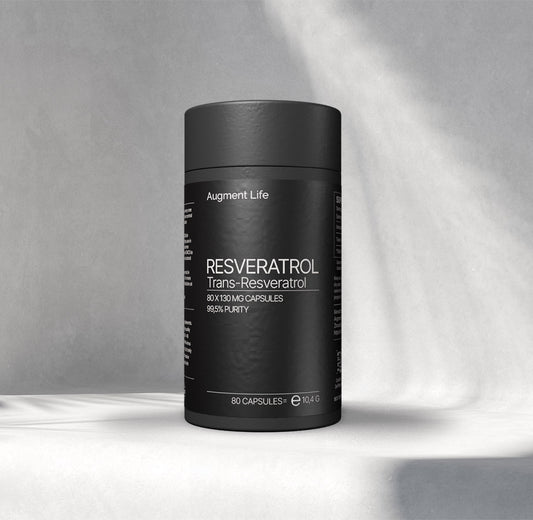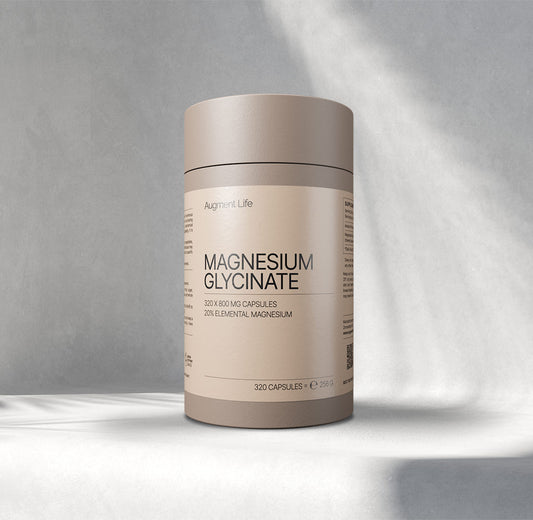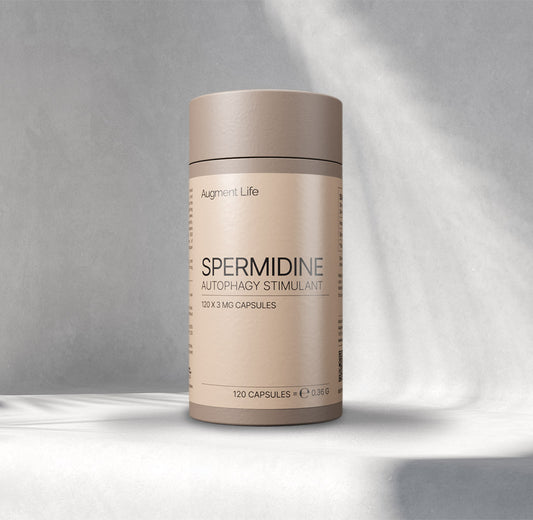La créatine est un complément alimentaire populaire, principalement utilisé par les athlètes, les bodybuilders et les personnes souhaitant développer et préserver leur masse musculaire. Bien que notre corps puisse en produire en petites quantités, il en faut beaucoup plus pour une prise de masse significative. Mais, combien exactement ?
Continuez à lire cet article pour découvrir quel est le bon dosage quotidien de créatine pour vous.
Qu’est-ce que la créatine ?
La créatine est un sous-produit des acides aminés que notre corps fabrique dans le foie, les reins et le pancréas après l’ingestion de protéines. Tous les animaux vertébrés la produisent et l’utilisent, et elle est principalement stockée dans les cellules musculaires (95 %) et les tissus cérébraux (5 %).
Notre corps utilise la créatine dans ces tissus à forte demande énergétique car elle est convertie en phosphocréatine. Cette molécule stimule la production de molécules d’énergie (ATP) dans les mitochondries de vos cellules musculaires (et cérébrales). Plus vous avez de créatine brute, plus elle peut être transformée en phosphocréatine et en énergie (1).
Créatine – Bienfaits pour la santé
La créatine présente de nombreux bienfaits scientifiquement prouvés. Le plus connu et le plus important est la croissance musculaire et l’amélioration des performances sportives. Cependant, ce n’est pas tout :
- amélioration des fonctions cérébrales et de la cognition,
- propriétés antioxydantes,
- amélioration de la santé intestinale,
- contribue à améliorer l’aspect de la peau.
Nous pouvons produire environ 1 gramme de créatine par jour si nous consommons une quantité moyenne de viande ou de poisson. Obtenir davantage de créatine, comme via un complément alimentaire, est presque impossible uniquement par l’alimentation. C’est pourquoi les suppléments de créatine sont extrêmement populaires et très bien étudiés.
En savoir plus sur les bienfaits de la créatine dans nos articles précédents :
- Pourquoi devrais-je prendre de la créatine ?
- Comment choisir le bon type de créatine ?
- La créatine aide-t-elle à perdre du poids ?
- Créatine et force musculaire dans la récupération post-AVC
Créatine – Dosage
Certains coachs sportifs recommandent de "charger" vos muscles durant les premières semaines de prise de créatine. C’est ce qu’on appelle la « phase de charge ». Normalement, durant cette phase, on prend 20 à 25 g de créatine par jour pendant 5 à 7 jours. Cette dose est généralement répartie en quatre ou cinq prises de 5 g tout au long de la journée (2).
La recherche montre que la phase de charge n’est pas indispensable. Vos muscles seront tout de même saturés, mais cela prendra plus de temps. Par exemple, avec la phase de charge, vos muscles sont saturés après une semaine. Si vous commencez par prendre seulement 3 g de créatine par jour, il faudra jusqu’à un mois pour saturer vos cellules musculaires (3).
Après la phase de charge, vous pouvez continuer avec 3 à 5 g de créatine par jour. C’est ce qu’on appelle la phase d’entretien. Pour un dosage plus précis, vous pouvez le calculer en fonction de votre poids : prenez 0,1 g par kg de poids corporel par jour.
Il n’existe actuellement pas assez de recherches pour savoir si les femmes et les hommes devraient prendre un dosage différent de créatine. La majorité des études ont été menées chez les hommes.
La créatine est-elle sûre ?
Oui, la créatine est considérée comme un complément généralement sûr si vous respectez la posologie recommandée. C’est aussi l’un des compléments alimentaires les plus étudiés, avec de nombreuses études scientifiques confirmant sa sécurité. La Société Internationale de Nutrition Sportive affirme qu’on peut consommer jusqu’à 30 g de créatine par jour pendant 5 ans sans danger (4).
La créatine est un composé naturel que notre corps produit et utilise, mais il peut atteindre ses limites si vous en consommez trop fréquemment. Cela peut aussi entraîner un stress supplémentaire pour les reins, qui traitent habituellement la créatine. Voici quelques effets secondaires anecdotiques signalés :
- ballonnements temporaires et rétention d’eau (au cours des 4 premières semaines),
- nausées et vomissements,
- problèmes rénaux (si vous souffrez déjà d’une maladie rénale).
Pensez à boire suffisamment d’eau pour éviter la déshydratation, et prenez la créatine avec des glucides ou au cours des repas. Si vous souhaitez essayer la supplémentation en créatine, nous proposons la meilleure forme disponible, la créatine monohydrate, sur notre boutique en ligne Augment Life :
Sources bibliographiques :
- Hall M, Manetta E, Tupper K. Creatine Supplementation: An Update. Curr Sports Med Rep. 2021 Jul 1;20(7):338-344. doi : 10.1249/JSR.0000000000000863.
- Gann JJ, McKinley-Barnard SK, Andre TL, Schoch RD, Willoughby DS. Effects of a traditionally-dosed creatine supplementation protocol and resistance training on the skeletal muscle uptake and whole-body metabolism and retention of creatine in males. J Int Soc Sports Nutr. 2015 Sep 21;12(Suppl 1):P2. doi : 10.1186/1550-2783-12-S1-P2.
- Hickner RC, Dyck DJ, Sklar J, Hatley H, Byrd P. Effect of 28 days of creatine ingestion on muscle metabolism and performance of a simulated cycling road race. J Int Soc Sports Nutr. 2010 Jul 7;7:26. doi : 10.1186/1550-2783-7-26.
- Kreider RB, Kalman DS, Antonio J, Ziegenfuss TN, Wildman R, Collins R, Candow DG, Kleiner SM, Almada AL, Lopez HL. International Society of Sports Nutrition position stand: safety and efficacy of creatine supplementation in exercise, sport, and medicine. J Int Soc Sports Nutr. 2017 Jun 13;14:18. doi : 10.1186/s12970-017-0173-z.












